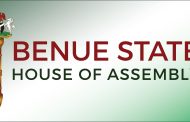By Adagbo Onoja
He is Prof Chimalum Nwankwo, a spectacle at his current base in the small but serene campus of Veritas University, Abuja. Very few would have failed to take note of him there. Dr. Emmanuel Egar, his colleague in the Department of English and another former intellectual pilgrim in the United States says of him as being a very deep cultural interpreter. Even the Vice-Chancellor of the university, Professor Hyacinth Ichoku, accepts that position to the point of fearing that some restless recruiters were sure to poach Prof Nwankwo as soon as they discover him to be in Veritas University and not the University of Ibadan, University of Nigeria, Nsukka or Ahmadu Bello University, Zaria. Ichoku wasted no time in manifesting the fear by issuing the dicta that no one could poach him from the university. It was a statement of self-acknowledgment in adding another star to a comparatively star studded Department but also a preemptive move to block potential recruiters with the money to offer an irresistible salary package to a professor of Nwankwo’s academic stature. Fortunately, Prof Nwankwo did not return to Nigeria for financial reasons. As he told me in this interview, his salary in the United States was something else, comparatively speaking. So, he didn’t come back to Nigeria for the reason of money. And the VC did not need to worry about him being vulnerable to any restless recruiters.
There is a sense in which comparing him to Okonkwo in Achebe’s Things Fall Apart is simply irresistible, notwithstanding the contrasts between the two. In physical terms, they would be of near equal height or size. As comely and gentle in manners, Nwankwo, like Okonkwo, seems to be on cue to pounce on someone or something at any time except that, again and still unlike Okonkwo, he does not establish correctness in a manner celebratory of valour or bullishness. He does it through an elevated grasp of continental philosophy, with particular reference to the complicity of the West in the ‘African condition’. But that is what returns us to comparing him with Okonkwo in the sense that he, like Okonkwo, risks being seen to be too radical in both Africa and the West.
Interestingly, he has passed the stage of worrying about what people may think about him. His definition of the task of the public intellectual by which he categorises himself is to expand the horizon of understanding and enable Africans to gather themselves towards freedom or something like that. In that sense, this interview is not for the philosophically faint hearted but for those who can afford the luxury of taking in their strides the beauty or ugliness they can see when they place themselves at the mercy of the mirror.
At the heart of Prof Nwankwo’s argument is the same attack on instrumental reasoning that the French 7 – Foucault, Jacques Derrida and co and, before them, the Frankfurt scholars – lobbed against the Realist School of thought, especially the Marxist dimension of it. While those scholars such as Derrida got French national honours when they died, it is not clear their own countries, not to talk of the continent, are preparing same honours for the Nwankwos of this world. However, both those who may agree with him and those who would not would still find in him one of the few African scholars who can say the sort of things that only Western scholars such as Richard Ashley, Ken Booth, James Der Derian, Simon Dalby, Gerald O’Tuathail, Cynthia Weber, etc are saying and writing against Western geopolitics without caring a hoot. In that sense, his interview leaves us with a puzzle: how is it that it is mostly those educated in the West – Westerners and non-Westerners alike – who feel compelled to expose and disrupt Western Otherisation of the rest of the world?
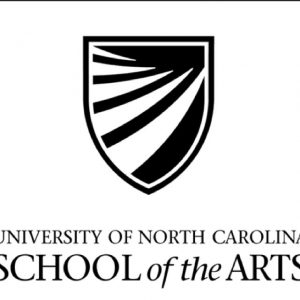
Moving from here
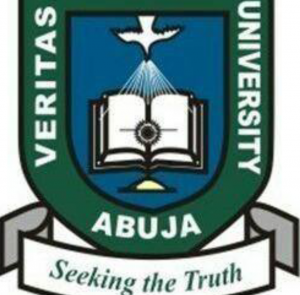
Moving into here
Let me start by asking how it is like crossing over from academia in the United States to academia in Nigeria? They appear to be two different intellectual cultures.
You may not call the difference intellectual but cultural. The student culture in America is different from that of students in Nigeria. Students over there are not really under pressure about advancing in academics so that they can become something. Sometimes, they are there just to fulfil family ambition: my dad is a graduate of Harvard, I want to be a graduate of Harvard. And things like that. The jobs are there when they graduate. So, they are not under the kind of pressure pushing their Nigerian counterparts. Nigerian students are under all sorts of pressure. That is why many get caught up in examination malpractices because they want to excel, get a good degree and, hopefully from there, become something. Family pressure is also there but different from that of American students. Here, it is about you having to get your education so that the family can benefit from your social mobility. It is differences of these types you see when you compare. Sometimes, the American students would come to you to say, hey, I just need a degree because I have already got a job. It is not so here. You don’t have in America the kind of hunger for knowledge that drives the Nigerian student. They really want to learn. You can feel the hunger. I was telling someone how, when I cancel a class in America, you get some students saying, ‘thank you very much’. You cancel a class in Nigeria, students are angry.
So, do we pinpoint culture or social mobility?
Social mobility is part of culture. Culture is nothing more than what or how people do their things. What you do socially is your culture. So, these differences are cultural.
From what you might have seen since you came in, do you think students are getting value for their exertions as to be able to respond to the pressures?
There are the students in Nigeria who really want to learn and many do want to learn but I just think that the American situation has a lot of advantages. You don’t have to have a degree to survive in America. You can go to what they call a community college and get something other than a degree. You want a Certificate in bricklaying, radio mechanic or auto-mechanic or any other of these things you call skills. There are places to learn them. A skill is different from academic learning. The skill is what gives you a job. You want to learn to be a bricklayer but you cannot learn to be a bricklayer in the university. You cannot learn how to be an auto-mechanic in the university. In America, the community colleges are there to help you get that. I just want to be a dispenser in a Pharmacy, you can go for a 6 week course in a college and you go and earn serious money.
My Marxist friends would say that the decision to be a dispenser or auto-mechanic should be taken after a young person has got a good, broad degree, not before it or it will become a way of blocking the children of the masses from education and social mobility.
The analysis is not right. As a teacher, you can tell a student who genuinely says, I want to be a doctor from the student who says: this thing called academic, I am not cut for it. Actually, students do come around to say, Dr. Chima, I know I disappointed you. I know you expected much from me but let me tell you, I am not interested in coming to the university. It is my parents. Otherwise, I had no interest. And sometimes, the parents come to my office. I call them and they come. Your child has no interest in coming here and that is not ridiculous. Your responsibility as a parent is to ask your child what he or she wants to be. Your child becomes a useless child only if the answer is: nothing. But if he says, Dad, I want to be a DJ, (Disc Jockey), let him go and hang out there as DJ. It is all about what energises his creativity.
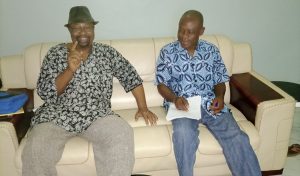
Prof Nwankwo stressing a point during the interview
No child in any system should take that decision before he has got a good First degree
It is not necessary because of the level of infrastructural development in that society.
Perhaps there but what of here?
Here is a different case. You would be right in saying that because medium level of expertise needed to survive doesn’t have the infrastructural foundation for that to happen. In the olden days, we had something like the City and Guilds for skills acquisition in Nigeria. You don’t have anything like that anymore. Kwame Nkrumah and Zik saw this in America. Nkrumah went back to Ghana and put it in practice. That is why when you see artisans from Ghana today, they are different from artisans in Nigeria because they have schools in Ghana where you learn how to be an artisan.
Up till now?
Up till today. Most of the artisans who do beautiful things around Nigeria today are from Ghana and Togo. You don’t have that here. Our system is such that if I want to be a mechanic now, I go to an illiterate overlord, not a college where the technicalities and their connectedness and everything involved in that skill are laid open before me. It is rather the apprentice system we still have.
How might we successfully marry the two? Obviously, the preference in Nigeria, if we go by most of the policy documents, is for the average student to get general education first and then decide where to go.
That is a faulty preference because if that were right, then you won’t have somebody like Coscharis.
That trader of spare parts?
Yes. That is him. He didn’t have formal education
But, how many of his types are there?
That is what I am saying. There are many like him from Nnewi. Nnewi is a cultural environment that has that kind of thing I am talking about. Nnewi is a special area of Nigeria on that. There is a little bit of it in Aba but Nnewi is the centre of what I am talking about. You can start following your uncle.
Is innovation the covering word for that?
It is not innovation as much as caring how every human being is directed on how to tap the potentials. Nnewi creates the environment for that. And much of it in nieghbouring places – Anambra on a smaller scale. You have to fill that vacuum rather than necessarily go to the university or you will come out and still be deficient in terms of knowing how to use your degree. That is how we have many graduates who have gone to school, got BA History or Political Science but nothing for them. In America, the student with a BA Political Science knows he cannot teach in a secondary school but could go to Wal-Mart and get a job. The degree has nothing to do with the work or that employment. You can see the difference in the system. From there, if he is a strong young man, he may decide, ok, I need a part time job McDonalds even though I work in Wal-Mart. Depending on his creativity, those two salaries will equate to what the regular graduate gets and then the money begins to get deployed for other investments. From there, he takes off. Now, America has three shifts: 7 – 3; 3 – 11 and 11 – 7. We don’t have that flexibility here. Here, you just go to work and go home from there. We are, therefore, looking at two different societies with different work cultures.
So, what might happen if you or someone like you were to be made the Minister for Education tomorrow?
If I am made the Minister for Education tomorrow, that is the first thing I would work on – reproduce that system which has worked in America and in Ghana by way of a medium level training place for artisan skills and expertise. You can create them easily by even making them appendages of polytechnics. When you do that, you can now tell a young person to go to the polytechnic. He doesn’t need School Certificate to go to the artisan skills section of the polytechnic. I call young people. I torment them who come to me from my village asking me for money. I say to them, I am an academic, I have no money and I cannot give you anything. But if you want to learn a skill like Generator maintenance, I can sign for you. But if you are looking for me to give you money to go and do business, you missed your way because I haven’t got that type of money. But if we have a polytechnic where the student will not be required to pay N50, 000 down to be an apprentice but let’s say N10, 000 for six (6) months, something will come out of it. There will be more people and you are sure of a deployable skill upon their graduation.
What role do you then want the state to play in education in Nigeria? There is no consensus on what that should be.
One thing about that is what I would call the pragmatics of the total circumstances in terms of cohesion and cohesion in relation to productivity. As I told somebody in Anambra, for instance, were I to be made Minister or Commissioner for Education or whatever you call it, the first thing I would do is take another look at these mushroom secondary schools and merge them. people are building secondary schools on the basis of my town needs a secondary school and then they build a school which has no more than five (5) students in some classes.
You will cause a lot of trouble then
If I did it? Exactly. You have to accept that I will cause a lot of trouble if you give me that kind of job. Believe that Chimalum Nwankwo will cause a lot of trouble because you have to cause some trouble to change things. First, quality and productivity will be harmonised. If I come 1st in a class of 30, you cannot compare me with somebody who came 1st in a class of 10. You need to look at things like that very carefully and critically. So, if you merge schools, quality will be enhanced in relation to productivity. If you are from Zuma, (a local area in Bwari county in Nigeria’s Federal Capital Territory), you don’t want to merge with Kuduru, (another local space), well, I am sorry I have to close the school in Zuma. You can only be angry if I do not have the bus to move students from Zuma to Kuduru in the morning or after school. For quality, we need such sacrifices rather than stick to, oh, Zuma has to have a secondary school because Kuduru has one.

An emerging community of writers at Veritas University, Abuja
So, how did you arrive at landing in Veritas University rather than the University of Ibadan, Nsukka or ABU, Zaria?
Well, I have friends here who think that I would help the strength of the university and of the Department of English here because of my exposure and I think when the VC saw my CV, he liked it and kept calling for it. After some strange delays, the CV eventually arrived at its destination and I was offered the appointment. I have come in here with no other ambition but to help the school in terms of stature and capability of the students. I didn’t come here for the money. If I were looking for the money, I would not even try to come back from the United States. There is no money here. My one month salary in the US, I know what it is. I am not here for the money. I told the VC I like this place because of the pioneering kind of environment which it offers knowledge seekers. The last time when we had a meeting discussing about seminars, I made my contribution. I said I would give the first seminar and I did. I would present to inspire my colleagues. Someone has already been picked to present the next one. If, for any reasons it doesn’t come, I would present again. I don’t mind that at all. We have to transcend talking
That takes me to the subject matter of your seminar presentation. It was like listening to an African version of Francis Fukuyama, Samuel Huntington or the late Edward Said outlining a grand sense of how the post Cold War is unfolding. What was at stake as far as you are concerned in the seminar?
What you should bear in mind is that I gave that seminar with interdisciplinarity in mind. I had hoped that philosophers would come; theologians would come; political scientists would come; biochemists would come; scholars from International Relations would come. I wanted everyone to be part of it in terms of discourse and the implications of discourse. I chose the topic deliberately – “Humanism and the Covid Pandemic: Noteworthy Imperatives”. I had presented another version of it elsewhere and I know the reaction to that presentation. I thought this university would benefit from it. There is no year in Nigeria I don’t give a Keynote text. I have another one coming up in September. Over the last three years, I have presented six of them. This is the 7th. I told my colleagues I am a public intellectual. It is not about English as my discipline.
When one reads the paper, it seems you were expecting Westerners to read the world outside of what Derrida would call the Western metaphysics. I was taken aback that you were lambasting humanism. Were you probably expecting them not to misread Africa after we have been told that every theory is for someone and some purpose and, therefore, never objective?
No. I was looking at implications of humanism as a discourse with all kinds of implications in terms of application. And you see that when the VC raised his critique of narrowness, I said he probably missed some aspects of the presentation. I said there is a Christological perspective, I said there is an ideological perspective and I said there is a Romantic perspective and other tributaries like the anti-humanist humanism. I pointed out the polysemous character of the word humanism. It has got so many dimensions. It is not a one-dimensional concept. As I reminded the Reverend Father who was saying African humanism is humane, we are so-called humane because of our attitude to human beings. It is not everywhere in the world that has that attitude. The Western world, for instance, doesn’t have that attitude. The West has what I call a God – removed world. They have tried to sanitise God out of it. For them, life is about dependency on the will and energy of the human being in terms of making far reaching changes regarding the human condition. The question they ask themselves is what do we do as human beings for each other as for the world to be a better place. They are not interested in God. If you bring God in, it is like self abuse to them. It is all about making the whole thing dependent on human will and energy. That is all. This planet is all we know.
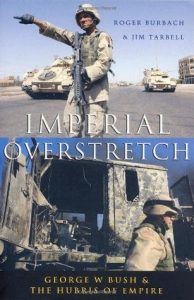
A classical Western scholar’s attack on the West

Narrativised and eliminated without most Africans knowing what was going on?
There is a way in which Huntington’s ‘Clash of Civilisations’ then makes sense after all because the pre-industrial consciousness in much of Africa contrasts with the detachment from religion in the way observable in the West
That’s right but it is not to take it as a one-way traffic and to think of a clash. It is also important for Africa to think through things. People need religion to gauge themselves but what type of religiousness? Almost every street in Nigeria has up to 20 churches or more. Mosques everywhere, all of them with loudspeakers blaring! And yet, see our standards. Is that not something we need to think about? Should we not while preserving religion also wake up to understand that the old saying that Heaven helps those who help themselves is still valid? You do some bits and then God will help you to produce value. Wouldn’t that be better for us?
The problem here is how the African discourse of humanism is so caught up between its metaphysical moorings and the intrusive influence of the Enlightenment thinking that the West has domesticated. The implication is that Africa is looking for a rescue operation and I am wondering if you are working on one.
That’s the concern. After the 18th century when the Enlightenment epistemology kicked in, it led the West very far towards industrialisation. Alright! But, after that, the West which is always exhibiting restless consciousness, wanted to know if things could be done differently. So, they had to begin to re-examine everything once more before they arrived at the concept of modernity. The implications of modernity is now total dependency on clinical efficiency in the manner we conduct our lives. I walk into this room, I press a switch and the light comes on or goes off. You want that kind of precision in human lives and they got that from industrialisation which followed the Enlightenment worldview and the world did not come to an end. They realised it. It was at this point they abandoned theism for Deism: God is a manifestation. Leave it at that. So, what you said earlier about metaphysical moorings, we are, as Africans, still hooked to those metaphysical variables which my friend calls a pan-psychic universe or world where God is reified and somewhere out there that we should dream of. This contrasts with the West which questioned everything ruthlessly and clinically after the Enlightenment. This was to the extent that when we get to Existentialism and Nihilism, we find a totally different attitude to reality. The logic behind modernity is very clear to the white man – the Adamic Covenant up to Abraham and so on is dead and buried by Existentialism and all that. The theory of relationships, especially if you are Christological, is based on, hey, if A is null and void, Z is also null and void. If it is true that the Edemic Felicity – the Garden of Eden and the origin of man – if it is true that it is rubbish, then the Apocalypse and the Judgment Day which concludes human destiny is null and void. In other words, they are asking if there is an infallible theory of modernity. So, what does the white man now think about? The white man now says, ok, if A is null and void and Z too, then all we have is the here and now. How do we deal with here and now? The answer they have given is that the only way we deal with that is constructing a new theory to guide and guard today. That’s all. And it means the whole moral system in relation to the past is null and void.
There is a quotation from Albert Camus upon which the Absurdists and the Existentialists base their philosophy: “In a world that is divested of illusions and lights, man feels a stranger because he has neither the promise of a lost homeland nor that of a future world to come” or words like that. If you read Albert Camus, that is the point he is making. That human beings are now strangers in a world that has nothing to do with God or wherever we think it comes from. Therefore, our problem is how to handle that world. That’s our problem: how to deal with that world. And their answer, again, is, we deal with that world by constructing a new set of values and those values must again go back to their brand of humanism – the God removed world.
And that is a view with implications for non-Westerners too
That’s right because in the God removed world, the position is, ok, it is fine to have an environment of peace and happiness as human beings may define peace and happiness but how do we do it? How we do it is by setting examples which are not helpful to the guys who do not believe in the ordinary man and the Overman that Friedrich Nietzsche and people like that talk about. The world needs an Overman to deal with the cattles which is another world for the rest of the world. The Overman is the superman who takes charge of this. How do we deal with guys like Saddam Hussein? He is dangerous. We have to kill him. If we let him prevail, the order will be destroyed. He gives room for the cattles to come and stop the genius of the Overman. So, we must stop him. How do we kill him without looking bad with the cattles under him? We will say he is evil, he is Adolf Hitler. If we let him alone, he will destroy the world. So, let us kill him. If we kill him, we can control his oil and use his oil to do good for the rest of humanity. The same thing applies to Gaddafi. We have to kill him, a very dangerous man. He is reviving the testament of Kwame Nkrumah – one, united Africa, one army for Africa, one economic system for Africa, Africans controlling their environment and destiny in all kinds of ways. That is very dangerous. Earlier on, you talked about Marxism. If we have to have a world in which the capitalist credo operates, then we don’t need characters like that. If Gaddafi makes Africa independent, where shall we have an under-class to exploit? If Gaddafi saves Africa, the whole of the West would be in trouble. Look, look at where Libya is: Greece is already suffering. Look at Spain, Italy, France. All of them will be in trouble. We better kill this man. We shall tell all kinds of lies. His people are stupid anyway, they would not know we are lying. So, they killed Gaddafi. Look at some of the claims after destroying him. They went to Sirte, his home town where the central bank was and found $230b sitting there, hundreds of billions of dollars all over the world, none was found in his name.
Some of us who are renegade political scientists call Libya a socialist paradise: education free, health care was free. If you marry today, you get $50, 000 to settle down. If you want a loan connected to agriculture, you get it. The water system is not the tap water you see all over the place here. It comes clean from the Mediterranean. Look at the beautiful perfect roads all over the place. And then the sanitised political environment free of corruption through the Jamahiriya or the ideological system. So, the white man saw a big threat there just as they saw in Thomas Sankara and people like that. Before that, Sergeant Doe temporarily before the Americans bought him and that sealed his fate. When Doe seized power initially, Libya befriended him, telling him what to do to make that place look like Libya. Then the Americans gave him a loan of $60 million to leave Gaddafi. When they see a sign of an African leader trying to project or suggest a road to clear independence from the West, they kill the person. Luckily for them, they have places such as Nigeria where you have chaos which enables them to manipulate us, play us against each other. So, their interpretation of the world have implications for the rest of the world and for Africa. So, it is not just what you think about God. You also have to think about what they think about God because their own interpretation have implications for you in Africa.






